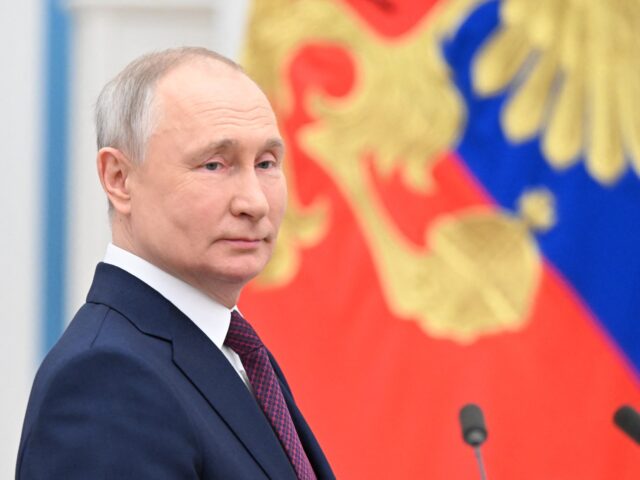The International Criminal Court (ICC) has ordered an arrest warrant for Russian President Vladimir Putin over allegations of war crimes in Ukraine, but the warrant is unenforceable — for now.
The ICC at The Hague announced that President Putin and Russia’s Commissioner for Children’s Rights Maria Alekseyevna are subject to arrest warrants and both face charges of war crimes relating to the transfer of people, including children, from Ukraine to Russia.
ICC president President Judge Piotr Hofmański released a statement on the warrants on Friday, stating, “it is forbidden by international law for occupying powers to transfer civilians from the territory they live in to other territories.
“Children enjoy special protection under the Geneva Convention,” he added and noted that details of victims were secret in order to protect them but noted that judges in the case decided to make the warrants public in order to prevent the commission of future crimes.
Hofmański added that while the ICC has ordered the arrests, the execution of the warrants would depend on “international cooperation.”
Execution of the warrants will likely be difficult under present circumstances as Russia, while initially a signatory to the Rome Statute of the International Criminal Court in 2000, the country withdrew from recognizing the ICC in November of 2016.
Ukraine, where the alleged crimes are said to have taken place, also does not recognize the authority of the ICC as it has signed the Rome Statute but never ratified it, though President Volodymyr Zelensky stated in 2019 that the ratification was a priority.
It remains unclear how the arrest warrants will be executed currently but in the case of regime change in Russia, the country could change course on its recognition of the ICC.
A precedent for such a move has been seen in past war crimes trials, such as the trial of former Serbian president Slobodan Milošević, who was the first sitting head of state to be charged with war crimes in 1999, a year prior to his overthrow in 2000.
Regime change in Russia has been stated as the ultimate goal of the Canadian government in regard to the Ukrainian conflict by Foreign Minister Mélanie Joly earlier this week.
“We’re able to see how much we’re isolating the Russian regime right now — because we need to do so economically, politically and diplomatically — and what are the impacts also on society, and how much we’re seeing potential regime change in Russia,” Joly said.
“The goal is definitely to do that, is to weaken Russia’s ability to launch very difficult attacks against Ukraine. We want also to make sure that Putin and his enablers are held to account,” she added.
Others, including President Joe Biden, have also mentioned regime change in Russia but in the case of President Biden, the comments were later walked back by administration officials.
Some world leaders, including French President Emmanuel Macron, have outright rejected calls for toppling the government of Russia.
“Let’s be clear, I don’t believe for one second in regime change, and when I hear a lot of people invocating for regime change I ask them, ‘For which change? Who’s next? Who is your leader?” Macron said.
Follow Chris Tomlinson on Twitter at @TomlinsonCJ or email at ctomlinson(at)breitbart.com.

COMMENTS
Please let us know if you're having issues with commenting.